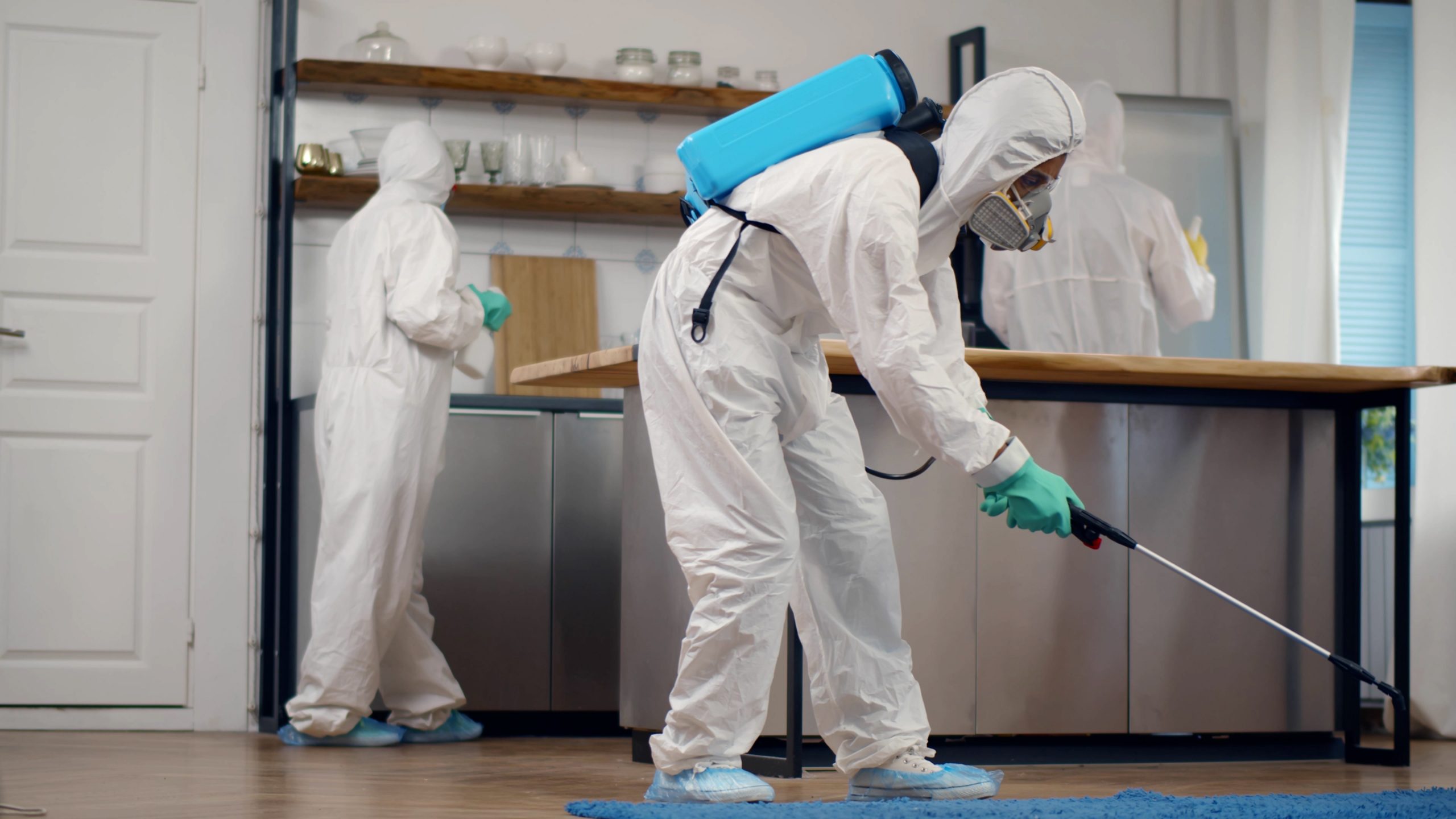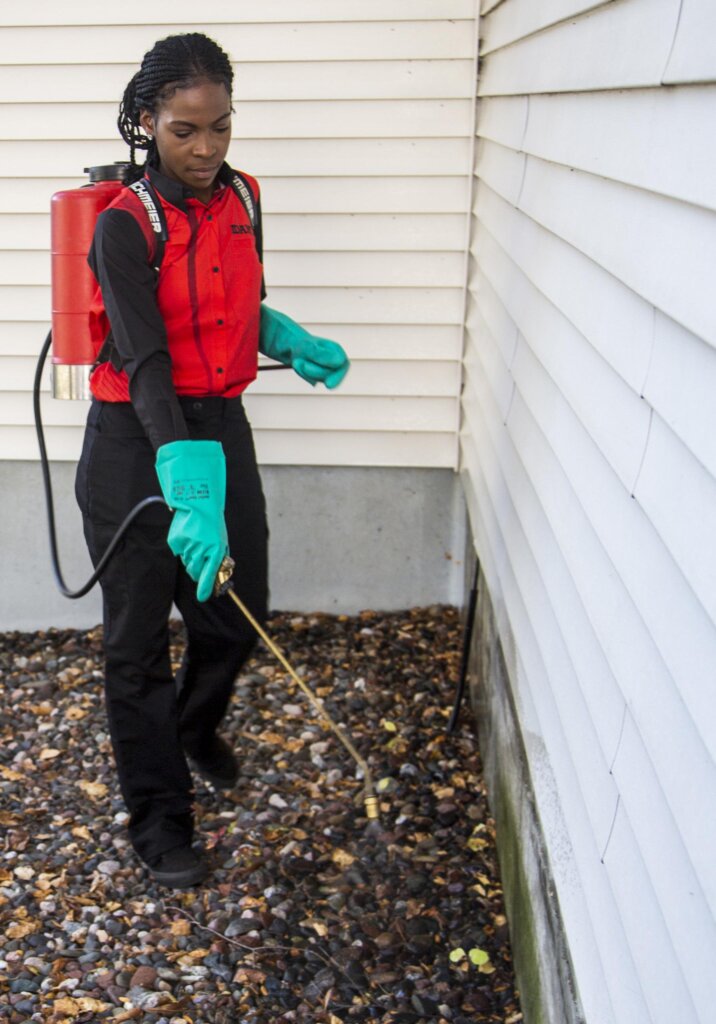Orem Pest Control: Your Partner in Preserving a Pest-Free Setting
Orem Pest Control: Your Partner in Preserving a Pest-Free Setting
Blog Article
Uncovering the Different Kinds Of Insect Control Techniques and Their Applications
Parasite control is an essential aspect of maintaining a healthy and risk-free atmosphere, whether it be in residential, business, or agricultural setups. From chemical techniques that target particular parasites to organic methods that harness natural predators, the world of pest control is large and varied.
Chemical Parasite Control Techniques
Chemical parasite control strategies are widely used in farming and bug monitoring to successfully eliminate or regulate pest invasions. These techniques entail the use of chemical compounds, such as pesticides, pesticides, and herbicides, to lower or get rid of parasite populaces that pose a danger to crops, livestock, or human health.
While chemical insect control strategies can be very reliable in taking care of bug populaces, they likewise elevate issues concerning possible environmental and health and wellness risks. Inappropriate use or overuse of chemical pesticides can bring about contamination of water, soil, and air, damaging non-target microorganisms and causing long-lasting eco-friendly damages. In addition, duplicated exposure to chemical deposits might posture wellness risks to farmworkers, consumers, and wild animals. It is vital to comply with safety and security standards, utilize integrated pest management strategies, and think about alternate approaches to reduce the adverse influences of chemical parasite control methods.
Biological Pest Control Techniques
 Organic bug control approaches use living organisms to take care of and lower bug populaces in a sustainable and eco-friendly way. This strategy entails introducing natural killers, parasites, or virus to control insects without the requirement for artificial chemicals. One usual technique is the launch of ladybugs to combat aphids in yards, as ladybugs are natural predators of these damaging parasites. Another example is using Bacillus thuringiensis (Bt), a bacterium that creates toxins dangerous to particular insect larvae, to control caterpillars and insects.
Organic bug control approaches use living organisms to take care of and lower bug populaces in a sustainable and eco-friendly way. This strategy entails introducing natural killers, parasites, or virus to control insects without the requirement for artificial chemicals. One usual technique is the launch of ladybugs to combat aphids in yards, as ladybugs are natural predators of these damaging parasites. Another example is using Bacillus thuringiensis (Bt), a bacterium that creates toxins dangerous to particular insect larvae, to control caterpillars and insects. 
Biological insect control techniques use several benefits over chemical approaches. They are commonly much safer for the setting, as they do not leave dangerous residues or contribute to air pollution. Furthermore, these techniques are often more targeted, impacting only the bug varieties without damaging useful insects or various other microorganisms. Organic control can be a lasting service, as the introduced microorganisms can develop sustainable populaces and give ongoing bug management. On the whole, biological parasite control methods present a efficient and all-natural choice to conventional chemical therapies, promoting a balanced environment and much healthier environments.
Physical Bug Control Approaches
Using physical approaches to control insects involves the usage of non-chemical or mechanical ways to alleviate and manage bug invasions successfully. These methods depend on physical barriers, traps, and various other strategies to discourage and remove bugs without using hazardous chemicals. One common physical pest control approach is the installation of nets, displays, or fences to obstruct parasites from entering details locations. This method is especially efficient in maintaining out insects and small animals from gardens or structures.
One more physical method is the usage of catches, such as snap traps for rodents or scent catches for look at this web-site pests. These traps aim to catch parasites without presenting any risk to human beings or the setting. In addition, physical control methods can consist of methods like handpicking pests off plants, utilizing vacuum cleaner gadgets to remove bugs, or employing warm therapies to get rid of bed pests and other pests in ravaged locations.
Integrated Insect Management Methods
Carrying out a holistic strategy to pest management, Integrated Insect Management (IPM) techniques aim to integrate various efficient strategies to stop and regulate pest invasions while decreasing ecological impact and making certain lasting insect control practices. IPM entails the integration of numerous control techniques such as organic control, cultural techniques, mechanical control, and the cautious use of chemicals.

Additionally, IPM stresses the importance of surveillance and analyzing pest populaces to determine one of the most appropriate control methods. By carrying out IPM strategies, pest control initiatives come to be extra targeted and reliable, reducing the dangers connected with extreme pesticide use and promoting lasting pest management options.
All-natural and Organic Parasite Control Options

One prominent natural pest control method is neem oil, derived from the seeds of the neem tree, which serves as a repellent and interferes with the growth and growth of bugs. Diatomaceous planet, an all-natural silica-based powder, is an additional effective organic pest control choice that works by drying out pests upon contact. By incorporating natural and natural insect control options right into pest management techniques, Home Page people can properly manage parasites while minimizing damage to the setting and promoting lasting techniques.
Final Thought
Finally, various insect control methods such as chemical, organic, physical, incorporated bug administration, and natural alternatives are offered for successfully handling parasite infestations. Each approach has its very own benefits and applications relying on the type of parasite and the atmosphere. By comprehending the various sorts of bug control techniques and their applications, individuals can make educated decisions on the most proper strategy to regulate pests and secure their property.
Chemical parasite control techniques are widely used in agriculture and pest administration to successfully eradicate or control pest problems - Orem Pest Control. check my reference Natural pest control approaches include using biological control agents, such as killers or parasites, to handle insect populaces. By integrating natural and all-natural insect control alternatives right into parasite monitoring methods, people can properly control insects while reducing harm to the setting and promoting lasting techniques
In conclusion, different parasite control methods such as chemical, biological, physical, integrated insect administration, and natural options are available for properly handling bug infestations. By comprehending the different types of insect control techniques and their applications, people can make enlightened choices on the most appropriate strategy to control parasites and shield their building.
Report this page